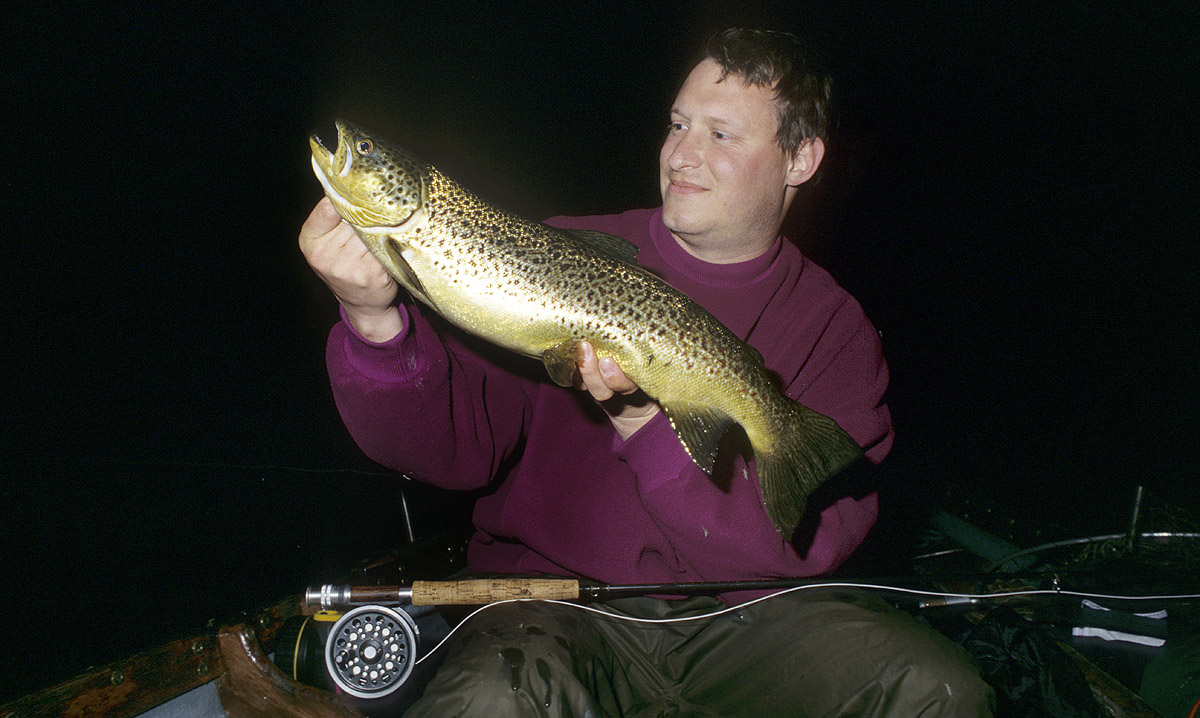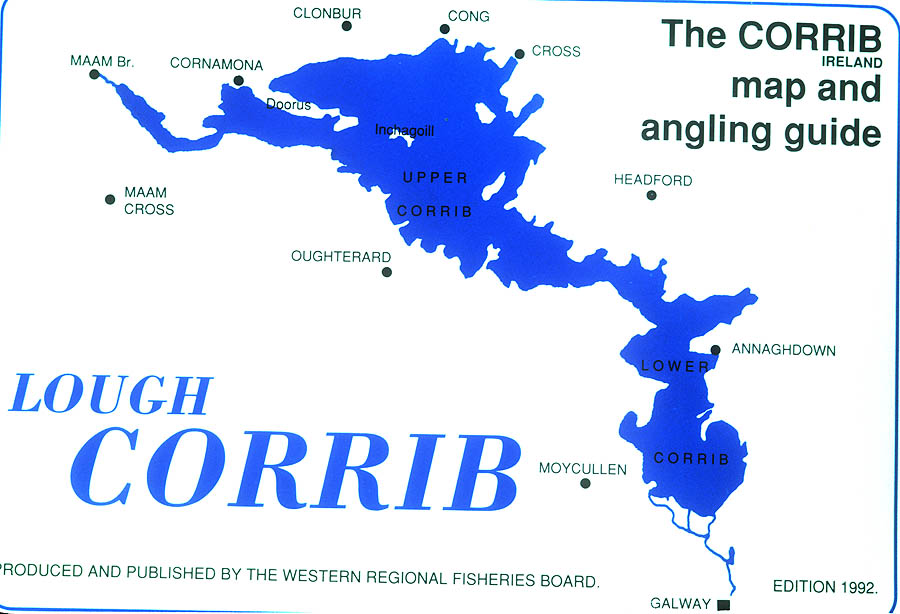 (1998) For many, many years I have been visiting England, Scotland and Wales regularly. I have been well and truly “hooked” on the natural beauty and fishing of the British Isles.
(1998) For many, many years I have been visiting England, Scotland and Wales regularly. I have been well and truly “hooked” on the natural beauty and fishing of the British Isles.
My good fishing and travel buddy, Nigel Botherway, has been with me at River Wye in Wales for a couple of years, and consequently that he told me about the glories of Ireland and especially the place he visits every year. He got my interest solid when he explained the lots of pike, overwhelming amounts of coarse fish, and especially the famous wild brown lake trout from Lough Corrib. I was probably said "Yes, Thank you!" many times before he had finished asking.
Our starting point for the fishing was Hotel Cloonnabinnia in Moycullen, near Galway. The hotel is ideally and idyllically located, just off Ross Lake, and no more than a 5 minute drive from Lough Corrib. In addition, the hotel has its own boats on Ross Lake, which we used diligently.
We fished pike and coarse fish in Ross Lake and Ballycuirke Lake, and as far as both the pike and the coarse fish are concerned, one has to admit that the stories speak for themselves: there are an awful lot of fish!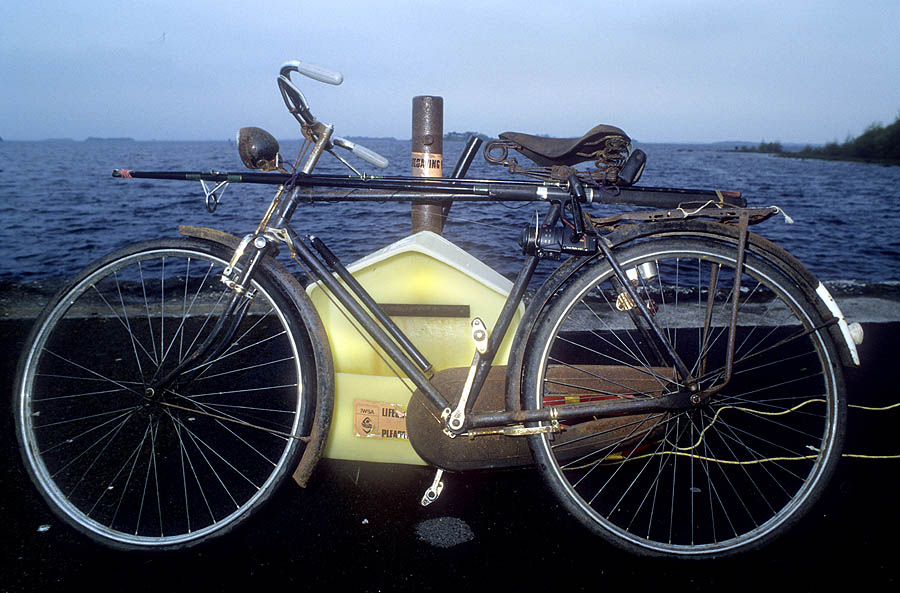
The pike we caught were in fine condition, and most at 2 to 5 kg. It's not quite in Sweden's class, but definitely an all-time sport when you get plenty of them. We caught them on pretty much every method - from boat and from land, on fly, spoons, live bait, dead bait, and surface hard lures.
Float and bottom fishing was primarily for bream, roach and hybrids, which they call "skimmers". Again, I have to say that it is not so strange that many English fellow fishermen make a pilgrimage to the “green” island to fish, because if you have never seen a full keepnet before, then at least you have the opportunity in Ireland.
When I started writing this article, I could hardly get started quickly enough to describe the fishing for Lough Corrib's trout - unfortunate for the other types of fishing, which will probably be a bit in the shadows - but where the pike and coarse fishing in Ireland are beautiful and plentiful, so is the legendary Lough Corrib trout, and the atmosphere that surrounds the fishing is in an absolutely distinctive class.
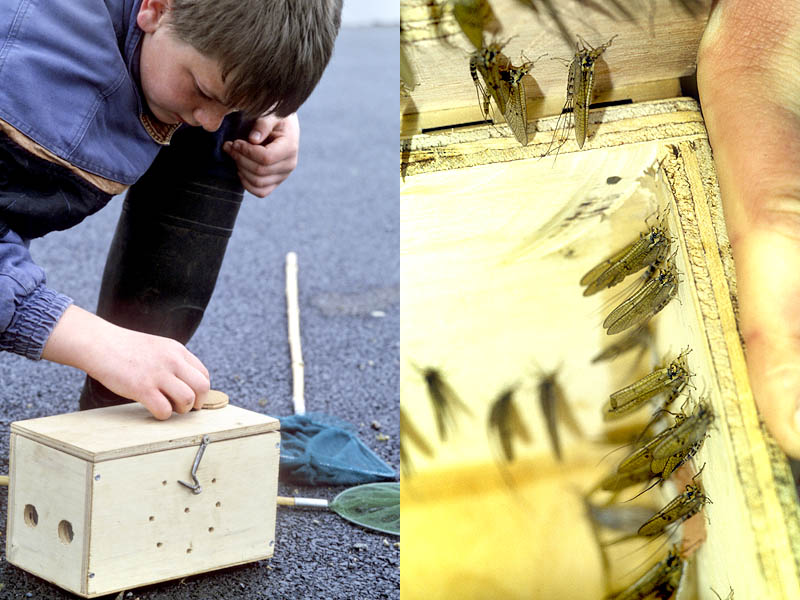 We arrived at Moycullen, and Corrib, just at the time when the all-important mayfly is hatching - it's of course in the month of May. The mayfly is their version of our spring fly.
We arrived at Moycullen, and Corrib, just at the time when the all-important mayfly is hatching - it's of course in the month of May. The mayfly is their version of our spring fly.
During a small sightseeing trip of the surroundings of Lough Corrib, we visited a number of villages that, like Welsh towns, which for foreigners are totally impossible to pronounce. One of these villages is Oughterard, where after a bit of impulse shopping in the combined sportfishing and cycling shop, we slipped out to the bridge of the local sportfishing club. Here was a veritable swarm of may flies and an equally sizable number of local kids, who, with small fishing nets, supplemented their pocket money by catching and selling the insects to anglers. The daily price was 1 £ a piece.
These mayflies really are the backbone of Corrib's trout fishery. The hatchings send the trout out into a total feeding frenzy, which the anglers capitalize on by either dapping with the real thing, or by fly fishing.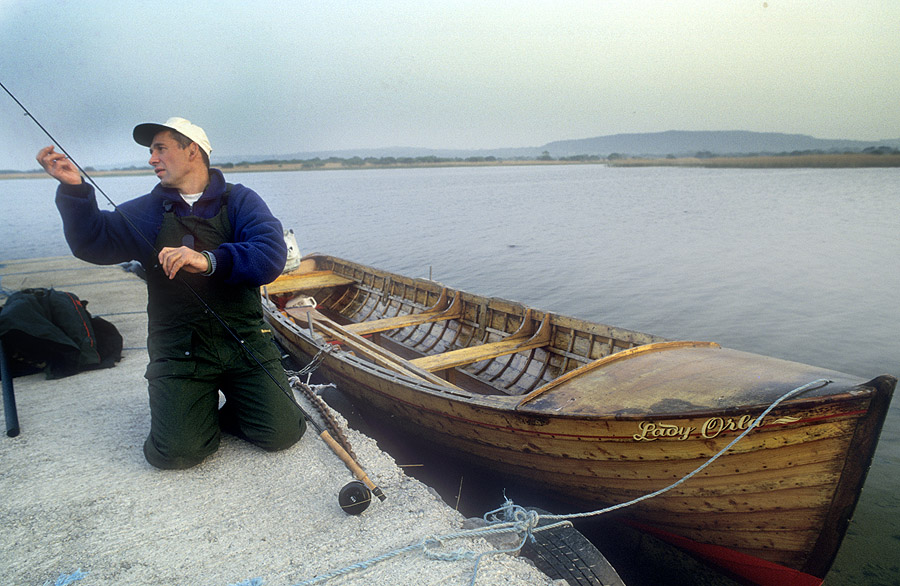
For several years, Nigel has been friends with the local gillie, Danny Goldrick, who was undeniably the most respected fishing guide on Lough Corrib, and he took us out on his boat to fish with dry flies two nights in a row. We met at Danny's boat at a small private bridge at nine o'clock. My first thought was: "How on earth are three men supposed to fly fish from this boat in the dark?"
But, it was actually not a problem at all. Surely, because Danny is an exceptionally skilled fly fisherman, and he had clearly had to content with two other baboons in his boat - surely also a couple from Fisk & Fri's editorial office.
We embarked on the small boat sightseeing on the Lower Lough Corrib, checking out the fishing spots, the river inlet, and then he asked us to get ready to look out for fish in the surface. He steered the boat with a little too much speed in through the reeds, as if he had lost touch with the boat, but of course it turned out to be me who just had not understood why. The hatching that night had not started yet, so what Danny did was really to prebait with the insects dropping off the reeds, in the hope that the trout would be spurred on for dinner - and it certainly worked...
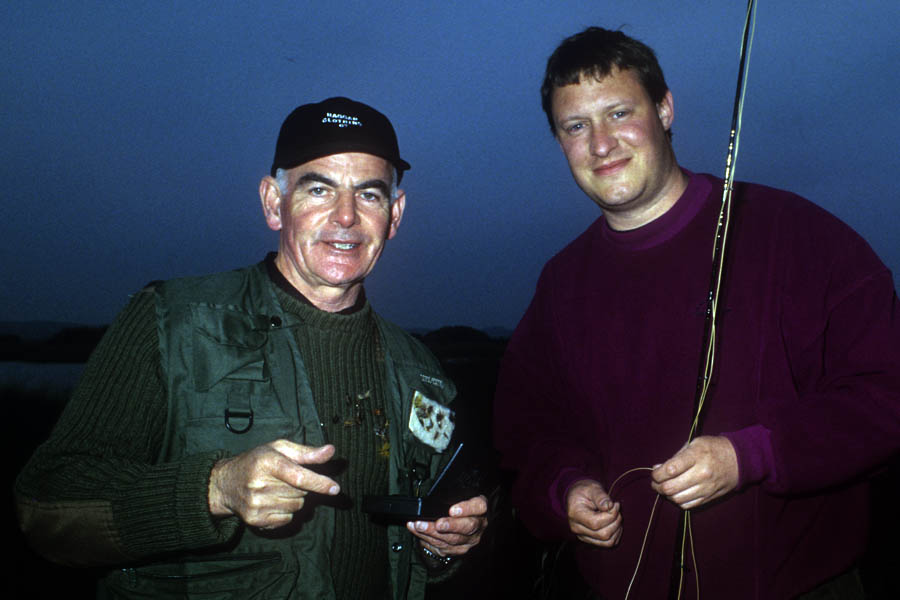 Just a few minutes later, there were splashes all around us, and we needed to be quick to get the dry flies cast at the rings in the water. Our targeting went quite well, but the trout didn’t seem particularly interested in our "buzzers". Well, they were only interested in Danny's fly. He landed in quick turn two extremely beautiful fish weighing 1.5 and 1.75 kilos respectively. What colours - the base colour of the fish was almost gold-bronze.
Just a few minutes later, there were splashes all around us, and we needed to be quick to get the dry flies cast at the rings in the water. Our targeting went quite well, but the trout didn’t seem particularly interested in our "buzzers". Well, they were only interested in Danny's fly. He landed in quick turn two extremely beautiful fish weighing 1.5 and 1.75 kilos respectively. What colours - the base colour of the fish was almost gold-bronze.
By the time I finished photographing Danny's fish, it had gotten so dark that I couldn’t see my fly anymore, but in return, the evening's hatching had begun, and what a hatch. At first it was a pleasure that the fish went crazy on the millions of mayflies, but it was also a little frustrating when you frantically cast to first one and right after to the other without being able to see if the dry fly had landed near a fish. However, I did not have to worry, because now the fish had also become interested in my "buzzer" - I missed two bites quite quickly in a row, and finally there was one well hooked. The fight lasted maybe 3 minutes, but in my mind it was a showdown of much greater proportions, and especially after the fish jumped three times; another beautiful gold-bronze trout, and this time at a little over 2 kilos.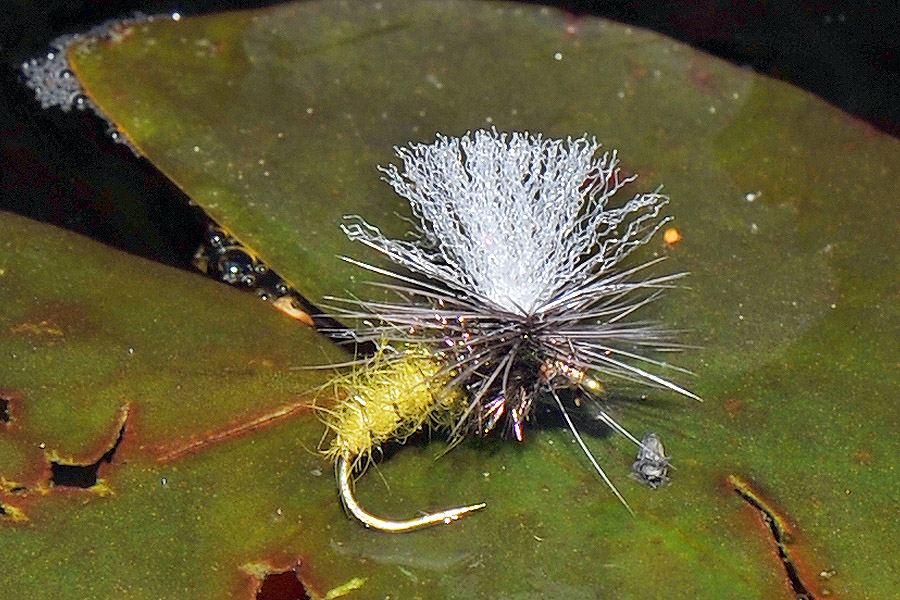
Nigel got his fish the next night. It weighed 1.9 kg, and was just as impressive as the others. This evening I took a little more time to enjoy and photograph the fishing, which turned out to be both a pleasure and a nuisance. The pleasure lay in studying the magic of the fish suddenly going at it. It is also called "the magic hour”. However, it dawned on me how many mayflies there really were, splattered on my clothes and fishing tackle, in my mouth and ears, behind mine glasses, in the photo bag. I dare not think at all what would happen if I inadvertently changed the lens on the camera...
After the fishing, we were invited to Danny’s house with his friends for drinks, sandwiches and a wealth of angling stories, which the old boys entertained us with, one after another. We never managed to get home before 2 am, and it was probably very good that it was not me who had to drive the car.
I agreed with Danny and his brave journeymen that we shall see each other again next year, and then I shall come over there at just the right time, which according to them is between the 18th and the 28th of March.
